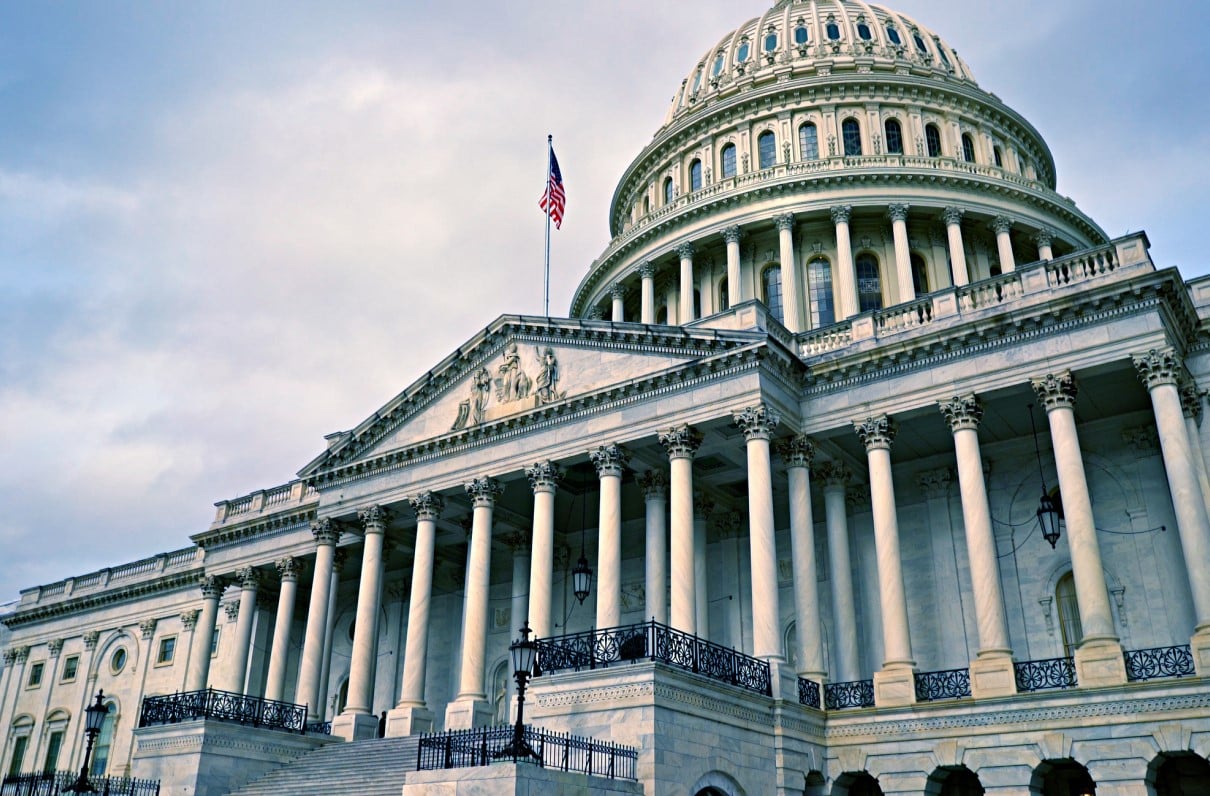Both the House and Senate reached milestones in the creation of must-pass defense legislation in recent days, with the House passing its version of the FY 2025 National Defense Authorization Act (NDAA) on June 14 by a 217-199 margin and the Senate Armed Services Committee advancing its version to the full chamber by a 22-3 vote on June 13.
Despite the progress in both bodies, the NDAA is far from its final form – the full Senate will offer amendments before voting on its version, and both chambers will form a conference to turn the vastly different pieces of legislation into a single bill.
Here’s a look at where some of MOAA’s provisions of interest stand:
Pay and Benefits
- Enterprise-Wide Pay Raise: Both versions of the NDAA support a 4.5% pay raise, which keeps pace with the Employment Cost Index.
- Junior Enlisted Pay: The House NDAA called for servicemembers E-1 to E-4 to receive a 15% pay raise beyond the 4.5% earmarked for all in uniform. The proposal is opposed by the White House, DoD, and congressional appropriators, and is not matched on the Senate side. The Senate version calls for an additional 1% increase for servicemembers E-1 to E-3 (beyond the 4.5% raise).
- Basic Allowance for Housing (BAH): The House version would restore BAH to 100% for FY 2025 – a move toward MOAA’s goal of full repeal of the BAH reduction, but not a permanent fix. The Senate version does not address the issue.
- Basic Allowance for Subsistence (BAS): The House NDAA would require DoD to evaluate BAS rates to determine whether they are sufficient, and whether other factors should be used to determine rates and provide recommendations for improving the allowance.
[TAKE ACTION: Ask Your Lawmakers to Restore BAH to 100%]
Health Care
- Pregnancy Qualifying Life Event (QLE): Both the House and Senate bills address expanding TRICARE QLEs to include pregnancy – a MOAA priority which would allow military families to overcome care challenges. Greater flexibility in switching between TRICARE Prime and Select will help ensure access to vital prenatal care.
- Reserve Component Dental Coverage: The House NDAA includes language from the MOAA-supported Dental Care for Our Troops Act that would provide TRICARE Dental Program coverage to Guard and Reserve members with zero premiums and cost sharing to support dental readiness.
- TRICARE Young Adult: Neither version of the NDAA includes language that would fix the parity gap for TRICARE families with young adult dependents to align TRICARE with requirements for private sector plans that must cover young adult dependents up to age 26. This remains a MOAA priority.
[TAKE ACTION: Urge Your Elected Officials to Fix the TRICARE Young Adult Coverage Gap]
Spouse and Family
A full breakdown of the House NDAA version is available at this link. Some highlights:
- Enhancements for DoD Child Care Providers: Last year, DoD required the services to implement a policy designed to incentivize more people to become child care providers (a nationwide challenge). This policy offered child care providers a 50% discount on child care for their first child. The Air Force went above and beyond, offering a 100% discount for the first child and subsequent discounts for additional children of child care providers. This year’s House NDAA would ensure parity across the services, with providers all receiving the 100% discount.
- In-Home Child Care Pilot Expansion: The House NDAA would expand the pilot to four more installations: Fort Drum, N.Y.; Holloman Air Force Base, N.M.; and Naval Air Station Lemoore and Marine Corps Air Ground Combat Center Twentynine Palms in California.
- Military Spouse Employment in the Federal Government: The House NDAA seeks to improve military spouse employment conditions in the federal government by expanding benefits and opportunities upon receipt of PCS orders.
Other MOAA Priorities
- Military Housing and Barracks: Both the House and Senate NDAA include provisions to invest in deteriorating barracks. Both also include a provision allowing junior enlisted sailors on sea duty to be authorized BAH in response to extended ship maintenance periods and the USS George Washington (CVN-73) scandal.
- Major Richard Star Act: Neither NDAA draft includes the Major Richard Star Act, a bill which would end an unjust financial offset faced by tens of thousands of combat-injured veterans who lose a dollar of earned DoD retirement pay for every dollar of VA disability compensation. A House amendment to the NDAA including the text of the bill was not found "in order" by the House Rules Committee. Learn more about the next steps in the Senate, including how you can make your voice heard to your legislators, at this link.
- Arlington National Cemetery (ANC): The Expanding America’s National Cemetery Act of 2023, H.R. 1413, is not included in either version of the NDAA. The proposed eligibility reduction for ANC remains on hold in the federal rulemaking process.
[RELATED: MOAA’s Work Continues to Preserve Earned Burial Benefits]
MOAA has worked with legislators and staff members in both chambers, from both parties, as the bills have moved forward, and that work will continue – our legislative team will advocate for provisions already in one or both pieces of legislation to assure their survival through the conference process, and we will look for opportunities in the Senate next month to move forward with proposals not included in the NDAA that will benefit the uniformed services community.
Consider calling your elected officials via MOAA's toll-free line to the U.S. Capitol switchboard – 866-272-MOAA (6622). Ask to speak with the military legislative assistant and encourage them to support the quality of life for our servicemembers through BAH restoration, a targeted enlisted pay raise, and a Senate floor vote on the Major Richard Star Act. You can read more on MOAA’s advocacy efforts at our Advocacy News page.
When MOAA Speaks, Congress Listens
Learn more about MOAA’s key advocacy issues, and contact your elected officials using our messaging platform.

